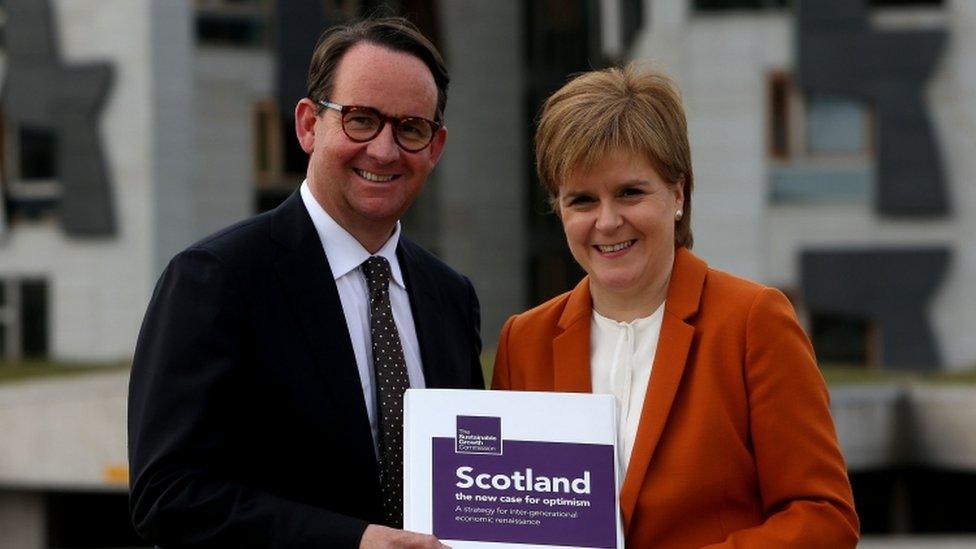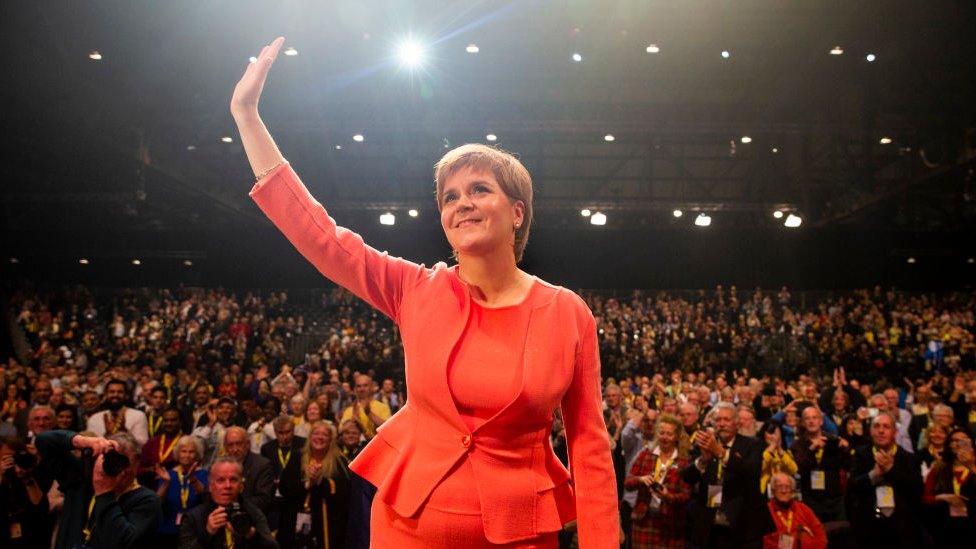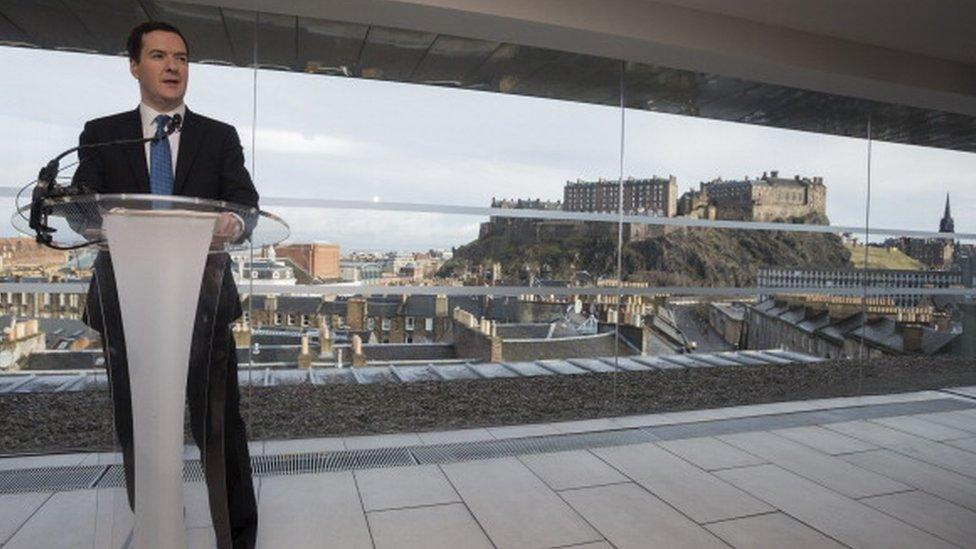Scottish independence: Andrew Wilson defends SNP currency plan
- Published

Andrew Wilson's Growth Commission report was welcomed by Nicola Sturgeon when it was published last year
The man who drew up controversial proposals for an independent Scotland's currency has insisted they offer the best chance of winning a referendum.
Andrew Wilson headed an SNP commission which recommended keeping the pound in the years after independence.
Scotland would then introduce its own currency if a series of economic tests are met.
The proposals have faced heavy criticism from some within the independence movement.
They claim the plan is not radical enough, and would keep Scotland tied too closely to the UK's economic policy after independence - while opponents of independence have predicted that people will not be willing to "gamble" their mortgage, salary and pension on the proposals.
But Nicola Sturgeon insisted the currency proposals were "entirely credible" when the report was published in May of last year.
The SNP's deputy leader, Keith Brown, lodged his own proposals in March for an independent Scottish Parliament to decide within its first term when to introduce a separate currency.
The announcement was widely seen as an attempt to find a compromise in the debate, with the party due to discuss the proposals at its conference later this month.
The Scottish government proposed a formal currency union with the rest of the UK ahead of the 2014 referendum - but the move was ruled out by then-Chancellor George Osborne.
In a wide-ranging interview with the BBC's Good Morning Scotland programme, Mr Wilson said the Growth Commission had aimed to offer a "more balanced view of the future, which says independence will take significant effort but that effort will be worth it."

The currency proposals will be debated at the SNP conference later this month
He said polling suggests people are more likely than before to believe that independence would benefit the economy in the long-term - but they remain to be convinced about how orderly the transition will be, especially given the confusion over Brexit.
The former SNP MSP added: "The level of integration we've got with the rest of the UK over 300 years in financial services, in wages and pensions and mortgages is pretty unique, so we have to tend and steward the transition towards the country we want to become.
"We want to be fast growing, we want our trade to diversify from overdependence on one of the slowest growing economies in the developed world.
"But transitions need to be managed and they need to be managed honestly so that people can say as we're going through it we knew this was what was going to happen.
"One of the big lessons from Brexit is effectively how not to do change, how not to manage transitions."

George Osborne ruled out a formal currency union ahead of the 2014 independence referendum
Former SNP MP George Kerevan is among those to have criticised the Growth Commission's currency proposals, which he has described as "too conservative".
Mr Kerevan wants a much faster transition to a separate currency, external, and to abolish the six tests which the commission said should be met before that happens.
But in his interview with BBC Scotland's economy editor Douglas Fraser, Mr Wilson said an independent Scotland would need to "fund public services sustainably" and convince lenders that "we are a good counterparty that will pay them back".
Acknowledging the criticism that has been aimed at him, he said he was "not seeking personal popularity - I'm seeking to win".
'Going to be a challenge'
Mr Wilson said: "We need to win by persuading people that are currently not convinced by the case, and all of the polling evidence is suggesting they are persuaded by a message that says the case for Britain is collapsing and the case for Scotland is developing.
"We have an argument that independence will be an effort. Money doesn't drop out a tree, Rome isn't built in a day, nothing falls in your lap. That's not real life. You don't win the lottery.
"What happens is you get a tool box and the ability to work, and that work will be worth it. It's going to be an effort, it's going to be a challenge, but all of the evidence of history in the small best performing countries in the world is that that challenge is worth it."
When the Growth Commission report was published, Scottish Conservative leader Ruth Davidson said the SNP plan to retain sterling would leave an independent Scotland using "the currency of what would then be a foreign country without asking, without their own central bank and without any backstops".
She added that the plans for what would follow sterling were not clear, adding: "I'm not entirely sure that is enough for the people of Scotland to want to gamble their mortgage on, their pensions on, their wages on and their future on."
Scottish Labour leader Richard Leonard said the report was a "cuts commission" rather than a growth commission.
He added: "Proposals to cut Scotland's deficit by almost two thirds over a decade would result in a level of austerity that not even George Osborne attempted".